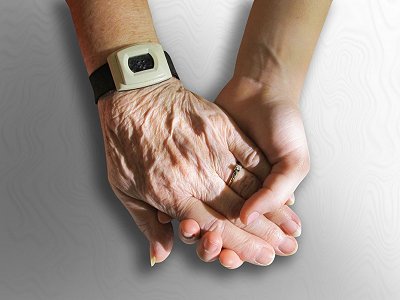
THE BEST VERSION OF OURSELVES
Personality is a given. It’s what makes you ‘you’. It distinguishes you from others as much as your face does. And it’s becoming more important. In an anonymised but highly connected world, your personality becomes your unique selling point. First impressions count, not just in interviews, but in the ordinary encounters of life. In Anglo-American culture, this means the louder and wittier you are; the more voluble and assertive you are in conversation, the more you will get noticed and your ambition be fulfilled. This is why we have so much trouble working collaboratively, because success is equated with being dominant.
It isn’t straightforward distinguishing character from personality, but if personality is what makes you ‘you’, then character is what makes you the best version of you there is. Colossians 3: 12-17 in particular tells us how we can be not the best in the world, but the best for the world.
There are some lovely words in it: compassion, kindness, peace and harmony. You would have to be very surly not to sign up to them. There are also some more demanding words, like meekness. I can’t imagine many people say they are meek on a job application, because it’s equated with being a pushover today. Jesus was meek, but he didn’t look like much of a pushover in his encounter with Roman power in the dead of night before his death. Meek people are secure people. They know their worth in God; they trust their lives to God; they put other people first, not least by letting them do the talking while they do the listening.
This passage also says we should bear with one another and forgive each other. The short, pithy, visual Psalm 133 talks about people of faith living in unity with one another. Unity is not uniformity, where everyone looks and thinks the same. And it isn’t served by hiding disagreements behind fake smiles and shallow conversation. The deep common identity we have in Christ transcends our differences, putting us on an equal footing before the cross. Churches witness to the equalising love of God, where no-one takes priority over the other. That’s the good news.
The harder bit is that because we know one another well in churches, often over many years, the petty resentments can build up, layered one on top of another like a bad Eastenders plot. When we come together, our unity can be powerful but our disharmony can be just as destructive. I do not know where these lines lie for people, but I know they will exist in one form or another, because they do everywhere. True Christian character is being the best version of ourselves we can be and not settling for less as acceptable to God.
In the last decade, new technologies have unintentionally polarised people, making them intolerant of different opinions. The pandemic has ravaged not just our physical health, but our social health too. It has pulled bricks out of our economy like Jenga. In places the structure has wobbled but held together; in other spaces the whole thing has tumbled down. And this has morphed seamlessly into a cost of living crisis through broken supply lines and war in Europe. Only a handful of years ago, all this was unforeseen.
Two things have not changed. The mission to share the love of Christ in his cross and resurrection. And the call to meet human need wherever we can. And the two are deeply entwined. The world is becoming very slippery in how it uses words, and we are caught up in this. People are evasive, unapologetic and speak in self-serving ways. We cannot permit this if the word of Christ is to dwell in us richly. If we want people to respond to the message of the cross, we have to show we mean this love in practical ways. The disciples did this in the early Church when they healed bodies as well as preaching the Gospel. For them it was all one piece and about the kingdom of God drawing near.
For us, right now, it means sharing the Gospel and showing people we care about their physical and emotional needs. As the letter of James said, in words that come to life in the modern world:
If a brother or sister is naked and lacks daily food, and one of you says to them, ‘Go in peace; keep warm and eat your fill’, and yet you do not supply their bodily needs, what is the good of that.
There are many needs in and around us and we cannot meet them all. But as churches, we have wisdom from God to work out what he is asking us to do.
In Colossians 3: 17, it says:
Whatever you do, in word or deed, do everything in the name of the Lord Jesus.
Figuring out what this means sometimes confuses people. How do we do things in the name of the Lord? It becomes clearer when we remember that the word ‘name’ in Hebrew thinking basically means ‘character.’ So Paul is saying, live your life with Christian character. The Holy Spirit is already within us; this life is within reach. In fact, it is who we are in Christ. We are simply becoming who we are. The best version of us for a world that has lost its footing.
POPULAR ARTICLES

God In The Cow Shed
2020 has been dominated by the C word. Not that C word. I mean conspiracy theory involve space. Some people believe the

Viral With The Holy Spirit
Since the tech revolution, insurgent new start-ups have enjoyed using the word ‘disruption’

Long Lost family
Some types of storytelling mess with your brain. Intentionally. Like one of those novels where you assume

Valuing Age
Lots of work is being done round unconscious bias in society, especially around gender and ethnicity

